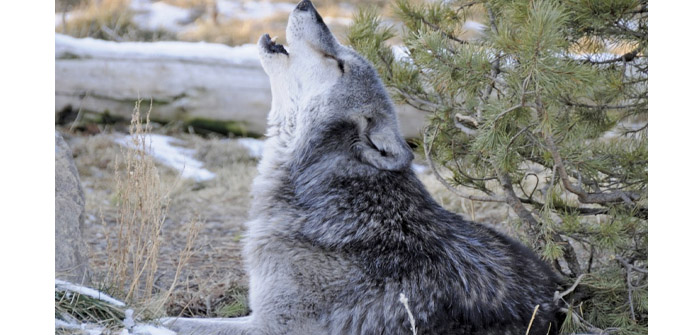(Photo | Courtesy of Worthy Garden Club)
Worthy Garden Club Grants $65,000 to Dr. Bill Ripple, OSU Department of Forest Ecosystems & Society
The Worthy Garden Club (WGC) recently announced that it has granted $65,000 to Dr. Bill Ripple, distinguished professor of Ecology and the director of the Trophic Cascades Program at Oregon State University to complete urgent research in biodiversity and habitat quality across eleven western states. Ripple’s work will analyze habitat availability, quality and connectivity across the American West and provide a framework for prioritizing rewilding throughout the region.
Rewilding is a process to restore ecosystem function and structure to achieve a self-sustaining nature. Rewildling can involve collaborative planning with extractive, livestock and agricultural industries to develop management techniques that protect habitat, remove exotic and invasive species and bringing back native keystone species, such as wolves and beavers, for restoration both within and across trophic levels and ecosystems.
Ripple distinguished himself as a leading scientist on climate change when he co-authored the World Scientists’ Warning to Humanity: A Second Notice in 2017. The paper provided an update of nine climatic parameters originally identified in the 1992 Scientists’ Warning to Humanity and became a global call for action, gaining the signatures of over 15,000 scientists around the world.
“Ripple’s common-sense strategies for managing biodiversity and planning for the future health of our planet will help us mitigate and adapt to climate change and provide a myriad of co-benefits for wildlife, water quality and carbon storage,” said Roger Worthington, president of the Worthy Garden Club.
Ripple’s work on updating measurements of climate change continued in a recent paper, World Scientists’ Warning of a Climate Emergency, coauthored by a number of scientists around the world, including Dr. Bev Law, another Oregon State University researcher partially funded through the WGC. “We need short, frequent and easily accessible updates on the climate emergency,” said Ripple in his 2021 report. This gift will help produce solid, real-world recommendations to improve habitat and biodiversity and meet long-term climate goals throughout the west and beyond.
“This work is critically important to ensure biodiversity and all the associated values are protected at a regional scale,” said Rick Martinson, the WGC’s executive director. “Degradation of habitat is a primary concern of ecologists worldwide. Through this project Ripple will provide data that will be used to develop long-term management practices aimed at protecting public resources and maintaining the environmental health of the American West for generations.”
The WGC grant will allow Ripple to identify key areas on public, tribal and private lands for rewilding. He will identify optimal corridors that will allow wildlife migration (primarily wolves and other large mammals), reduce habitat degradation, protect threatened and endangered species and increase overall biodiversity.
“We are pushing ecosystems to the point where they may not recover unless we take aggressive actions to reduce ecological degradation and protect a diversity of species and functions,” Ripple said.
Ripple’s 20 years of research is primarily on the relationship between predators and ecosystem health — the field of trophic cascades. He has over 200 refereed journal articles and reports, but his Second Warning paper is in the top five percent of all research outputs ever tracked by Atmetric, a web-based database that monitors the impact of published research. He has done extensive field research that has catalyzed policy makers to provide protections for wolves, spotted owls and other species.
“We are immensely grateful for the Worthy Garden Club’s vision and support,” said Ripple. “The gift will allow us to focus on the benefits of protecting and enhancing biodiversity and habitat, and address the critical need for climate mitigation and adaptation in the American West.”
To find out more about the Worthy Garden Club’s efforts addressing biodiversity and climate change issues, contact Dr. Rick Martinson, executive director at 541-639-4776 ext. 221 or Rick@worthygardenclub.com.
Source: Newsweek.com





